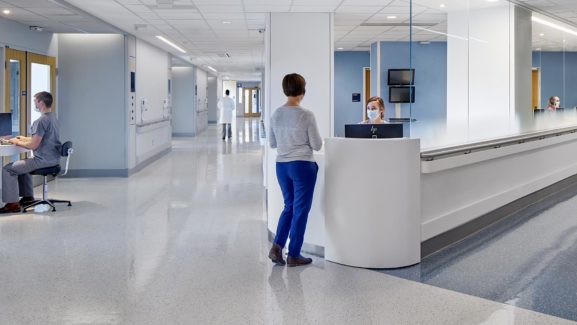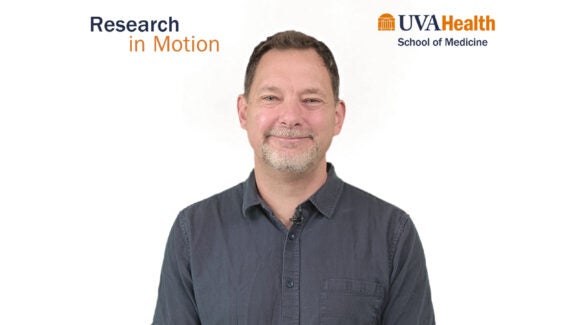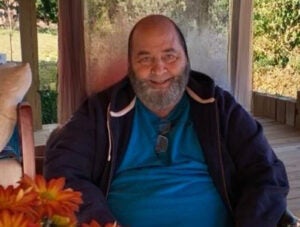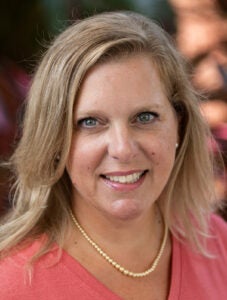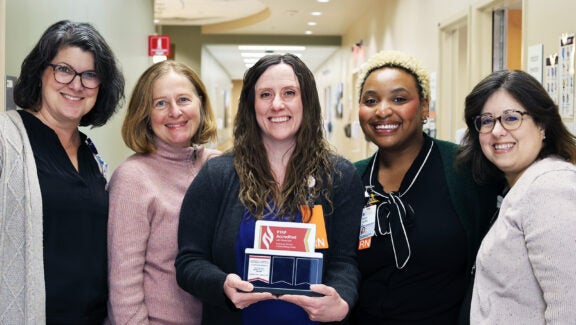
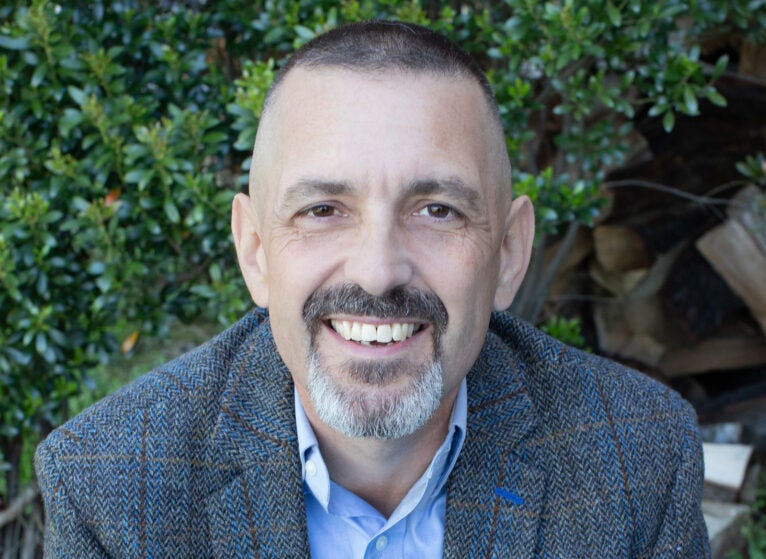
UVA Health Team Member Donates Kidney to Help Father-In-Law
April is Donate Life Month. For many people, offering to donate an organ is as simple and impersonal as checking a box on a driver’s license, but for UVA Health Culpeper Medical Center team member D.J. Anglin, III — it was personal.
Anglin, a public safety officer, had a great relationship with his father-law, Herbert Murrel, who had diabetes and was on dialysis. “He needed a kidney, and I was happy to help," says D.J.
Unfortunately, after undergoing medical tests, D.J. learned he was not a compatible match for Herbert. But doctors did determine D.J. to be a healthy donor, and Herbert still needed a kidney. So, the organ transplant team at the UVA Health Charles O. Strickler Transplant Center in Charlottesville set D.J. and Herbert on a path in the paired donor exchange program, matching incompatible donor-recipient pairs with other pairs to “exchange” donors.
The transplant center team searched for a match for D.J. and continued its search for a match for Herbert. This process helped bump Herbert up the line. After a year of searching, the transplant center finally found matches. “There were four of us that day in surgery,” D.J. recalls. “Knowing that I was eligible, and what a difference it could make — why wouldn’t I do it?”
Transplant Coordination in Charlottesville
Anita Sites, ACNP, Transplant Coordinator at UVA Health in Charlottesville, remembers D.J. very well. She’s been taking care of transplant patients and living donors since 1998 in the hospital setting and since 2002 in the outpatient transplant center.
Transplant coordinators are specialty RNs who have experience taking care of transplant patients, and in this case — living donors. “The coordinator is really the patient’s link to the transplant center and hospital, and helps patients navigate the process of being evaluated as a donor, preparation for surgery and post-operatively. The coordinator is a frontline resource and usually the first line of communication for patients as well,” she explains.
Sites is also a nurse practitioner, so as a provider she performs physical exams, diagnoses, and treats disease processes, and prescribes medications. For the living donors, she’s also involved in each phase of their care and helps manage their care in the acute and long-term stages.
Are most donors family members like D.J. and his father-in-law? Anita says often, a living donor is not related. “In fact, a fair number of people come forward to be an anonymous, or non-directed donor, in which case they want to donate to anyone in need."
Keeping Close Tabs
At the time of his surgery, D.J. took about six weeks off work. “It really was not that bad of a recovery. I have a small scar that looks like a C-section scar," he describes. And he can’t say enough good things about the team at UVA Health. “Right until the last minute. They let me know I could back out at any time!"
After the surgery, the UVA Health team kept close tabs on D.J. for two years. “I knew I could call my team any time," he remembers. He says the only noticeable life change was that he was no longer able to take ibuprofen. D.J. then cleared his final, two-year, follow-up.
Sadly, Herbert passed away during the pandemic. But D.J. is happy that Herbert’s remaining time gave his father-in-law a better quality of life than what he’d enjoyed in a while. “He was a great guy! I think about him every day,” D.J. reminisces.
Organ and Tissue Donation at UVA Community Health
According to Tori Martin, Director, Center of Nursing Excellence — UVA Community Health works with organ procurement organizations LifeNet and Infinite Legacy. “They partner with us when we have potential organ and tissue donors as part of our obligation under state and federal law to uphold this opportunity," she describes. "We do not discuss the opportunity with the families, but use specific criteria to notify our partners to evaluate each case individually and approach as appropriate. They are specially trained to do so.”
UVA Health Haymarket Medical Center and UVA Health Culpeper Medical center have low potential for organ donors, but have many tissue donors annually. “Both facilities identify potential organ donors on ventilators but they often transfer to higher level of care facilities like UVA Health in Charlottesville or UVA Health Prince William Medical Center,” she says.
Caitlenn Knox, Hospital Donation Coordinator at Infinite Legacy, says organ donations have increased at UVA Health Prince William Medical Center in the past few years. There are many ways to let people know you want your organs donated besides marking the box on your driver's license. Individuals can register as organ donors through state-specific registries, sign up through national organ donation organizations, or express their wishes to family members and healthcare providers.
According to Donate Life Virginia, there are currently more than 100,000 people in the United States waiting for organ transplants. Each year, approximately 8,000 people die waiting for an organ transplant that would have given them a second chance at life. And annually, hundreds of thousands of people benefit from donated tissue used for lifesaving and reconstructive purposes, and corneas that restore sight.
Latest News

